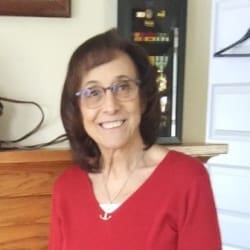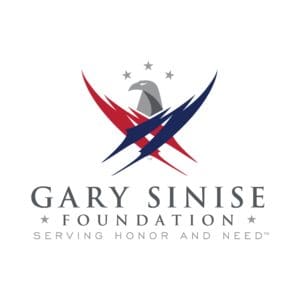Take time to breathe and care for yourself in addition to caring for your care recipient.
At what moment did you realize you were a military caregiver?
In 2018, at a Phillies baseball game, as they celebrated the 4th of July with fireworks, my husband cried out, “Incoming!” and went to his knees covering his head. I saw the fear and terror and knew I was beginning a life of challenges and caregiving.
What does being a military or veteran caregiver mean to you?
Loving intensely, giving endlessly, journaling, observing and standing in the gap for my husband.
How has your life changed since you became a caregiver? What sacrifices have you had to make?
Since my husband suffered a pulmonary embolism and stroke, our life together has changed dramatically. We can be lying beside one another, laughing, holding hands, and being husband and wife, and within the next moments I can be changing briefs, feeding my husband, mothering and nurturing him. I don’t feel I have made any sacrifices as I believe love and sacrifice for that love are one and the same. We, as caregivers, are all servant leaders.

My Story
Lillian married her husband Harry, a Vietnam veteran, 52 years after they first met in junior high school band. When marrying at 67, Lillian hoped to keep her nursing career, travel with her husband, and serve their community. However, that all came to an unexpected halt.
On April 18, 2020, what Lillian first thought was Harry having Covid-19, was actually a pulmonary embolism and brain injury. Harry was in a coma for 24 days, and now experiences partial blindness. Harry also suffered from paralysis on his right side, putting him in a wheelchair. In addition to the aftermath of the pulmonary embolism, Harry suffers from post-traumatic stress disorder (PTSD) and hearing loss from his time in service.
Daily, Lillian dresses, feeds, bathes, exercises, and moves Harry around with the help of a Hoyer lift. She also cleans the home, prepares all meals, and manages all household financial requirements for Harry. Lillian feels her pervious nursing career has helped her be able to care for Harry, but continues to hope for additional help in care, rehab, and support in their rural area.
Harry also relies on constant communication with Lillian due to his blindness and paralysis, so when Lillian is away from Harry, even in a different room, she calms him down by calling him and talking to him even when in the shower or getting the mail. Luckily, Lillian and Harry have a community of friends who support them, and their faith gives them the hope and strength to continue each day. They also enjoy attending local Veteran Service Organizations’ events to connect with other veterans and caregivers.
Lillian continues to bring awareness to others about the dangers of inactivity during PTSD episodes and the need to monitor sleep and anxiety patterns. As a Dole Caregiver Fellow, she hopes to continue fighting for better accessibility for those in wheelchairs and their caregivers.









